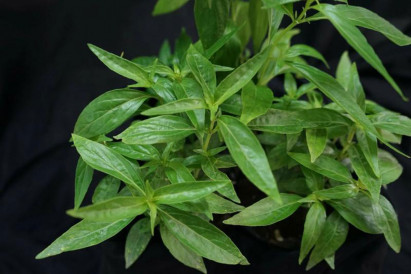Campaign aims to increase value of local sector by up to B100 billion

A campaign is under way to promote use of herbal plants in modern medicine to boost their value by at least 90 to 100 billion baht by 2027.
The plan was hatched following the release of the “Herbal Champions” announcement by the Ministry of Public Health, which included a list of 15 Thai herbs to be pushed into the global market, said Dr Thongchai Lertwilairatanapong, director-general of the Department of Thai Traditional and Alternative Medicine (DTTAM).
Domestic sales of herbal medicinal products were worth an estimated 43 billion baht in 2018, according to an academic study.
The plants on the Herbal Champions list were divided into two groups: those that are ready for further development, including turmeric, green chiretta and black galingale; and those that have development potential, including kodavan, emblic, plai, ginger, galingale, aloe vera, kwao krua kao, bitter gourd, veldt grape, kratom, hemp and cannabis.
These plants are included on the National List of Essential Medicines and have the potential to do well in the global market.
However, Dr Thongchai said the plants are rarely used at hospitals that conduct modern medical treatments, prompting the DTTAM to come up with a plan to promote the herbs.
With the available information, the department is planning to get involved in the application and production processes to pave the way for the development of herbal drugs and treatments.
In the application process, the department will focus on building patient trust in traditional medicine by encouraging research and promoting its use in treatments, Dr Thongchai said.
“The herbs will be used to substitute for treatments for some diseases that modern medicine cannot fully treat, namely office syndrome, paralysis, drug addiction and some skin diseases,” he said.
Herbal substitutions for modern medicines, with reliable research, will be highlighted during the application process, he said.
In the production process, the department will seek to cut imports of some herbal extracts and encourage growers to produce goods that meet Good Agricultural and Collection Practice (GACP) quality standards by ensuring they are free of pesticides and toxins.
The department will also focus on the role of the Economic Herbal Plants Trust as a moderator between growers and business owners, he said.

